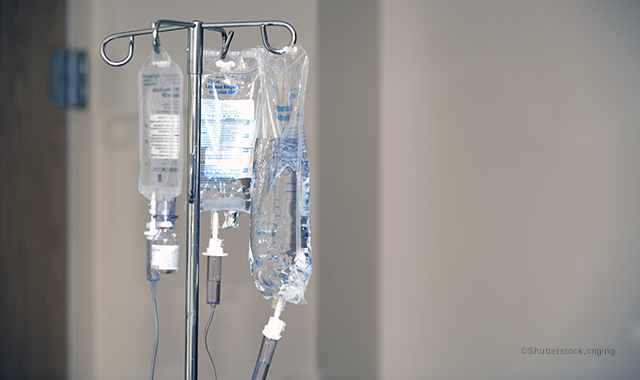Study finds men require less sedative than women during oral surgery
An article published in the current issue of the journal Anesthesia Progress found that male patients required a lower dosage of a sedative than female patients during oral surgery.

The stress that oral surgery patients experience during a procedure can cause elevated heart rates and blood pressure during operations. To avoid these side effects, surgeons often request sedation or general anesthesia for their patients. However, finding the right dose of anesthetic can be its own challenge, especially when the dosage needed for each patient can vary greatly.
An article published in the current issue of the journal Anesthesia Progress found that male patients required a lower dosage of a sedative than female patients during oral surgery. This finding is consistent with general anesthesia knowledge, which suggests that females emerge from sedation earlier than males. The researchers were able to establish this finding by using an objective assessment tool known as the bispectral index (or BIS), which allowed them to evaluate sedation levels by a special form of brain wave monitoring beyond merely monitoring the patient’s breathing and reactions during surgery.
More emerging research: New research discovers way to eliminate needles for dental anesthetic
The authors of the study gathered data from 125 dental patients who were sedated for implant-related surgery. Propofol, a powerful general anesthetic often used during surgery, was given intravenously to each patient. The researchers sought to identify characteristics that affected the average infusion rate of the drug. They found that women generally needed far more Propofol to stay adequately sedated for the duration of the surgery. Elderly patients of either sex are also slow to wake from Propofol sedation, but the age range in the current study was too small to determine whether patient age was affecting the data.
The authors noted that, on average, the women in the study weighed less than the men. This means that women generally need more Propofol per body weight than men to stay at the same level of sedation. The authors concluded that for adequate moderate sedation during implant surgery, women likely need to receive Propofol at a high rate.
Trending article: 9 of the scariest medical conditions with links to oral health
Oral surgeons and dentist anesthesiologists should be able to give lower doses of anesthesia to male patients, making the sedation safer and more effective. The BIS tool used in this study is not routinely used during dental or medical treatment under sedation. Still, the authors noted that even when the tool is unavailable, the study’s results should help in determining the correct anesthesia dosage for patients undergoing minor oral surgery.
Full text of the article “Female Patients Require a Higher Propofol Infusion Rate for Sedation,” Anesthesia Progress, Vol. 63, No. 2, 2016, is now available at http://www.anesthesiaprogress.org/doi/full/10.2344/0003-3006-63.2.67.
Oral Health Pavilion at HLTH 2024 Highlighted Links Between Dental and General Health
November 4th 2024At HLTH 2024, CareQuest, Colgate-Palmolive, Henry Schein, and PDS Health launched an Oral Health Pavilion to showcase how integrating oral and general health can improve patient outcomes and reduce costs.
Floss & Flip Flops Episode 22: National Dental Hygiene Month
October 1st 2023Join the Sanders Sisters and Dr Anna Kay Thompson as they learn about the burning questions the medical community is not asking about oral health. Learn about all of the ways they are celebrating the good work of dental hygienists in their quest for whole-body health.